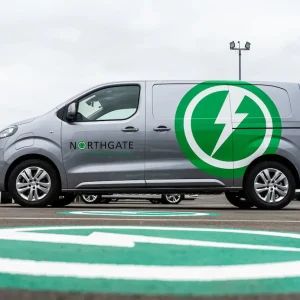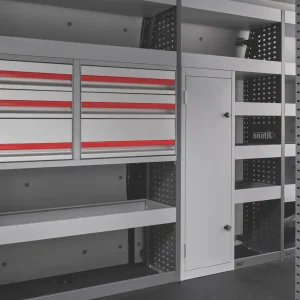Time consuming, a minefield, risky – buying and selling a used van for a busy sole trader or small business is something rarely enjoyed or eagerly anticipated.
For every hour spent on it there is the potential to be losing valuable business, but if care is not taken, expensive mistakes can be made both on acquisition and disposal. The traditional method of driving the old van to a couple of dealers, haggling a deal, shaking hands and doing a simple exchange, whilst still an option, is now just one method of many. These days the selling and buying will probably be two separate transactions.
The pandemic saw auction companies having to close their physical doors and continue to trade online only. This has led to some no longer being willing to allow buyers or sellers to participate in auctions unless they are bona fide motor traders, those braver used van purchasers (and sellers) are no longer welcome. Accommodating those sellers who want a no-hassle method of disposal, the ‘webuyany’ type of organisations have expanded both their activities and presence, with most members of the public now no doubt able to name a couple of these companies when prompted to.
Andy Picton, chief commercial vehicle editor at data supplier Glass’s thinks that these services have some real benefit to the busy small business. “If you’re pushed for time, or just want a quick sale, this could be for you. Input your vehicle details and mileage online and receive a value.
“If you accept, you arrange a final inspection and drop-off of the vehicle. This inspection takes into account any missed scrapes and dents that were excluded in the initial valuation. A final price negotiation and the sale is agreed with cash going into your bank account.
“It’s unlikely that you will receive as much as if you sold your vehicle privately, but the process is designed to be easy and hassle-free.”
With a shortage of vehicles to sell in recent times, it’s become commonplace to see dealers appealing for vehicles by offering the ‘best price’. Timing can be of the essence here, because if the dealer has a customer in mind for the van, it is likely to be willing to pay strong money as a lower profit margin is better than no sale at all. Independent garages in particular can be worth approaching with a van that isn’t rough or that hasn’t been worked too hard.
Jim Reid, managing director of Aberdeen-based Jim Reid Vehicle Sales Limited said: “A pro of disposing of or selling your van to an independent dealer is that often an independent will retail a slightly older, slightly higher-mileage van than you would find a franchise dealer buying, therefore they will offer more money for a van than a franchise dealer and often more than some of the car buying sites as you are cutting out the middleman.”
Selling privately has fallen out of favour with many, the ‘grief factor’ becoming too much. For those who are prepared to risk the additional work that may be required, the reward can be a higher return. Portals such as Gumtree and Facebook Marketplace offer immediate and wide exposure with low or even zero fees payable. Glass’s Picton thinks there is a balance to be had.
“These are specialist sites that allow buyers and sellers to connect directly with each other, making it easier to find a buyer. The sites generate a huge amount of traffic and offer thousands of vehicles for sale. However, as with all private sales, there are no guarantees. Finding the right buyer can take time and can be frustrating,” he said.
Buying a used van has probably never been easier, suggests Leanne Thomson, head of sales for Auto Trader Vans. “There’s lots of different avenues to buy or sell a van, but whether you’re a small business or a large one your needs are going to be the same – choice, convenience, and cost. Marketplaces, such as Auto Trader are a great option because from the comfort of your own home or office you can access a huge range of available stock, and a very large audience of potential buyers – on average, we see around 1.4 million visitors every month to just our dedicated vans marketplace alone,” she said.
With many used van buyers being wary of the risks of buying a second hand van, Thomson explains how customers can easily research the source, reassuring them that the seller is trustworthy.
“Another benefit of using a marketplace such as ours, is trust and transparency,” she argued.
“Not only can you check the verified customer reviews on the thousands of retailers that advertise on our platform, but with so many other vans available on site, you can check to make sure you’re buying and selling at a fair market price. Given the pressure small businesses are under, every penny counts.”
These sentiments around research are echoed by Hannah Rouch, chief marketing officer for Gumtree. Highlighting the risks from buying and selling privately, she said: “Buying or selling a used van for your business is a crucial investment and can feel like a really daunting decision. But it doesn’t have to be. Do your research into the vehicle you’re looking to buy or sell. What’s the market value when you consider mileage, condition, service history? You don’t want to be paying over the odds or pricing out potential buyers.”
Although most auction companies will now only allow trade access to sales, Matthew Davock, director of commercial vehicles at Manheim Auction Services says that buyers attempting to use other trade sources should tread warily.
“While it can be tempting for buyers to turn to wholesale channels in the hope of saving a few quid, my advice to anyone in the market for a used van is to talk to a dealer and brief them on your requirements and budget. Dealers have visibility of the full market and are adept at sourcing the right vehicles at the right price. Good ones more than earn their modest margin in terms of the expertise and reassurance they provide,” he said.
Reid highlights additional benefits from buying a used van from an independent dealer.
“The obvious pros for dealing with an independent garage when buying a van is the choice, the fact that you will not be restricted to only one manufacturer, therefore you can pick and choose and compare makes and models at one site,” he explained.
“The fact that you can also have a choice of funding options too if the Independent is regulated to offer finance, [means] services [are] all in one place, which is important to a tradesman who is time poor.”
With a note of caution though, he added: “The cons are likely to be the fact that if there is a problem with the vehicle very few independents have the capacity and depth and spread of knowledge [to deal with] certain issues with vans, especially when it comes to DPF, Adblue and EGR faults.”
Supported by:






